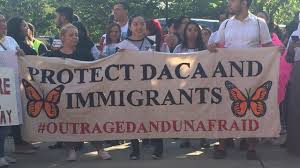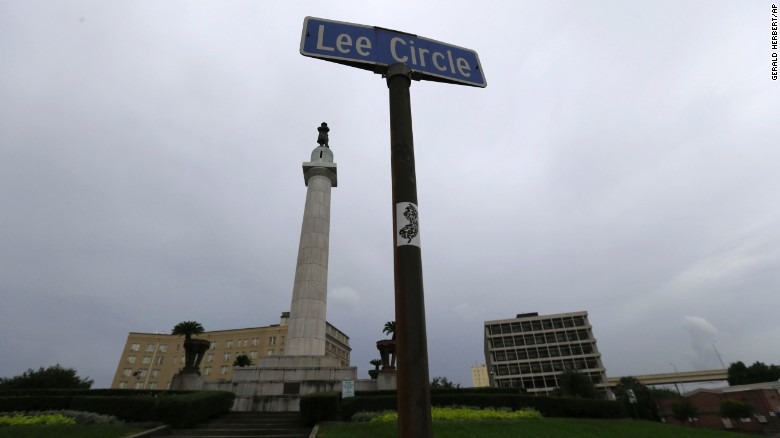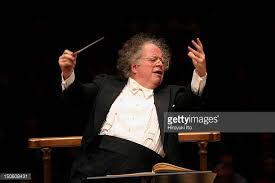 I was home on Saturday afternoon. As I have for over forty years, at I o’clock, starting every December, when I can, I listen to the Metropolitan Opera radio broadcast. It was the first broadcast of the season. Very unusually, the performance was not of an opera, but the Requiem of Giuseppe Verdi. James Levine was conducting. It was, if I am correct, his 2865th performance with the Metropolitan Opera, far more than any other performer in the history of the house. It probably was his last.
I was home on Saturday afternoon. As I have for over forty years, at I o’clock, starting every December, when I can, I listen to the Metropolitan Opera radio broadcast. It was the first broadcast of the season. Very unusually, the performance was not of an opera, but the Requiem of Giuseppe Verdi. James Levine was conducting. It was, if I am correct, his 2865th performance with the Metropolitan Opera, far more than any other performer in the history of the house. It probably was his last.
We Asked and People Came—by Ayala Emmett

Bobbi Berg
Karen Elam
Barbara Orenstein-Present
Sunday December 3 turns out to be a beautiful sunny day, a surprising treat in Rochester. I sit in a line of cars inching our way to unload our donations at the door. The line is long, the day is pleasantly warm, and I decide to park my car and walk over. I do not know yet that I would speak to the organizers of the event. I am unaware that I would encounter Alexis de Tocqueville’s Democracy in America, or that I would leave with unexpected gifts. My plan is to just drop off my items and enjoy the rest of the day.
Shanah Tovah
Standing with DACA and Reading Deuteronomy-by Ayala Emmett
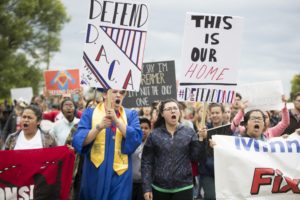 DACA’s young people grew up in this country. They went to school with our children; they embraced American values, they became our kin, friends, students, and colleagues. This administration is brazenly threatening them with expulsion and exile. There are no words to describe the dread they feel that they might become fugitives, stripped of their American identity, home and life, as they have known it.
DACA’s young people grew up in this country. They went to school with our children; they embraced American values, they became our kin, friends, students, and colleagues. This administration is brazenly threatening them with expulsion and exile. There are no words to describe the dread they feel that they might become fugitives, stripped of their American identity, home and life, as they have known it.
Those, like Jeff Sessions, who so callously would exile 800.000 amazingly courageous young people, suffer from amnesia. They refuse to remember their own histories, their ancestors who came to this country for a better life. Fleeing religious persecutions, despotic kings, poverty, famine, and hardships. They came with the same hopes and aspiration of DACA’s parents when they entered. No difference. Those who plot expulsion, use amnesia/blindness to ignore the fact that their immigrant ancestors and DACA parents shaped, and continue to shape American democracy. All immigrants have entered this country with similar aims.
Rally to Save DACA!
Join us in Rochester for a Press Conference and
Rally to Save DACA!
Friday, September 8, 2017, 12 Noon
Federal Building, 100 State Street, Rochester, NY
For information: Carly Fox,(585) 500-9409,carly.fox.wjcny@gmail.com
John Ghertner, (585) 733-3171, johnghertner@gmail.com
As many of you know, on September 5th President Trump ordered an end to the Deferred Action for Childhood Arrivals (DACA) program that shields some 800,000 young undocumented immigrants, who were brought to the United State as children, from deportation. They should not be deported! This inhumane act will permanently hurt the dreamers, who walked out of the shadows and trusted our government. Instead, this decision will destroy their families and futures and cost the US billions. Dreamers need a permanent legislative solution with no strings attached.
Judith—by Peter Eisenstadt
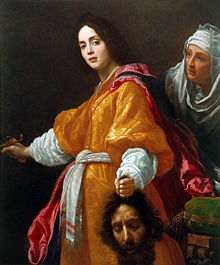 An Israelite town, Bethulia, is besieged. (The narrative seems a little confused about whether it is the Babylonians or Assyrians doing the besieging, but never mind.) The Bethulians are desperate, running out of food and water. The leaders decide they will give God five days to get them out of their pickle; if God doesn’t come through, they will surrender, and their fate will be in the hands of their conquerors. Then a wise and wealthy widow, Judith, summons the elders. She criticized their plans, and criticized their theology. Don’t give God any ultimatums. “Do not try to bind the purposes of the Lord our God; for God is not like a human being, to be threatened, or like a mere mortal, to be won over by pleading. Therefore, while we wait for his deliverance, let us call upon him to help us, and he will hear our voice, if it pleases him.” Judith knows in hard times, it is not God, but the faithful that are being tested.
An Israelite town, Bethulia, is besieged. (The narrative seems a little confused about whether it is the Babylonians or Assyrians doing the besieging, but never mind.) The Bethulians are desperate, running out of food and water. The leaders decide they will give God five days to get them out of their pickle; if God doesn’t come through, they will surrender, and their fate will be in the hands of their conquerors. Then a wise and wealthy widow, Judith, summons the elders. She criticized their plans, and criticized their theology. Don’t give God any ultimatums. “Do not try to bind the purposes of the Lord our God; for God is not like a human being, to be threatened, or like a mere mortal, to be won over by pleading. Therefore, while we wait for his deliverance, let us call upon him to help us, and he will hear our voice, if it pleases him.” Judith knows in hard times, it is not God, but the faithful that are being tested.
The Eclipse—by Peter Eisenstadt
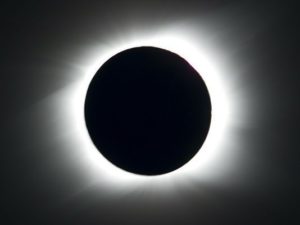 I suspect the beginning of all wisdom, of all religion, of all science, consisted of the earliest humans looking at the sky with wonder, looking for meanings, fashioning explanations. They found what they were looking for. They found gods, they found portents of good fortune, harbingers of doom. They found, as the Torah and Hagaddah says, “signs and wonders.”
I suspect the beginning of all wisdom, of all religion, of all science, consisted of the earliest humans looking at the sky with wonder, looking for meanings, fashioning explanations. They found what they were looking for. They found gods, they found portents of good fortune, harbingers of doom. They found, as the Torah and Hagaddah says, “signs and wonders.”
They also found order. The most mysterious quality of the sky was that it was humans who could figure out some of its mysteries. They found patterns. They knew that the same group of constellations appeared in the same part of the sky, every year, in the exact same place of the sky. They knew that the moon completed its cycle every 28 days, the stars every 365 days, and the five visible planets with their individual cycles, but each of them was utterly predictable. It was hard not to think that these regular patterns did not have some impact on our lives. Surely the stars and planets controlled the weather, and perhaps our personal and collective destinies? But the more we learned about the planets and the stars, the less likely this seemed. We could now understand the movement of the heavenly bodies with utmost precision, down to the nanosecond. We started to explore the heavenly bodies we once gaped at in wonder. We have even walked on the moon. Something had been gained, surely though much of the mystery had been lost.
Choosing Life on Friday Night—by Ayala Emmett
 On Friday night, on her tiptoes, a two-year-old in a lovely summer dress is helped by Rabbi Levy to light the Sabbath candles. Her parents, holding a baby, recite the blessing.
On Friday night, on her tiptoes, a two-year-old in a lovely summer dress is helped by Rabbi Levy to light the Sabbath candles. Her parents, holding a baby, recite the blessing.
The congregation joins the parents in an Atrium filled with people, suffused with a summer sunset and two lit candles. The words of the blessing for the candles are familiar and ancient. They are rooted in a long Jewish tradition and had appeared already in a ninth-century prayerbook. Reciting the blessing in community creates a seamless connection. Recited in the present it creates a protective canopy across time and space.
Thoughts about Confederate Monument Controversy –by Peter Eisenstadt
1) First, to state the obvious, contrary to our president, “you can change history.” What you can’t change is the past. As the president no doubt remembers, Hegel, in his Philosophy of History stated “history encompasses in our language [that is, German] the objective as well as the subjective aspect and signifies both historiam renum gestorum (historical accounts of the past) and res gestae (the things themselves.)” Same in English. Though today we are perhaps more skeptical than Hegel that the “res gestae” are self-interpreting. History, the interpretation of the past, is always changing. And the history of the Confederacy has undergone vast changes in recent decades.
On the Horrible Violence in Charlottesville—by Peter Eisenstadt
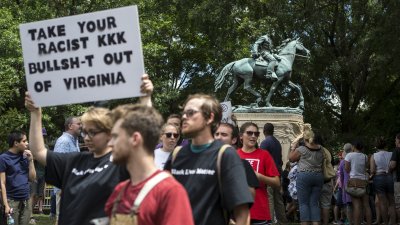 Let no one mistake who is behind the violence in Charlottesville, that took the life of at least one protestor against the neo-Nazis, and left many more seriously injured. It’s not David Duke, it’s not the so called “alt-right,” it’s not even our miserable president, who is incapable of making even a grudging gesture to the cause of justice. It is that notorious traitor, Robert E. Lee, the man responsible for the death of more US military personnel than Adolf Hitler. The protests are over a statue of Lee that the city of Charlottesville wants to remove. This statue was erected in 1924. It’s time for it to go.
Let no one mistake who is behind the violence in Charlottesville, that took the life of at least one protestor against the neo-Nazis, and left many more seriously injured. It’s not David Duke, it’s not the so called “alt-right,” it’s not even our miserable president, who is incapable of making even a grudging gesture to the cause of justice. It is that notorious traitor, Robert E. Lee, the man responsible for the death of more US military personnel than Adolf Hitler. The protests are over a statue of Lee that the city of Charlottesville wants to remove. This statue was erected in 1924. It’s time for it to go.

